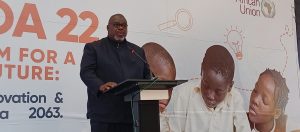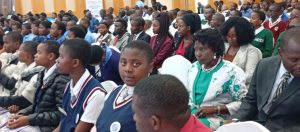African nations have been urged to prioritise investment in homegrown technology and innovation by aligning their education systems with the continent’s development goals.
The call came at the opening of the 22nd Conference on Mathematics, Science and Technology Education in Africa (COMSTEDA 22) in Lilongwe, Malawi, a gathering which has brought together scientists, engineers and educators from across the continent to share ideas and strengthen science, technology, engineering and mathematics (STEM) education.
Malawi’s Minister of Education, Science and Technology, Bright Msaka, said Africa must shift from being a consumer of imported technologies to a producer of its own innovations through practical and relevant science teaching.
“We must move away from teaching mundane subjects like dissecting a frog to opening up a mobile phone and seeing how it functions. Science and technology education must address Africa’s needs today and tomorrow,” said Msaka.
He added that despite progress in promoting STEM learning, Africa remains dependent on foreign-made technologies, a situation that limits industrial growth and innovation.
“If you look around your home, very few gadgets are designed or made on this continent. That must change. We would like to see a television made in Zambia or a mobile phone made in Mozambique,” added Msaka.
The conference also called for the decolonisation of science education, urging African governments to prioritise skills that help solve real-life challenges and drive socio-economic transformation, in line with Agenda 2063, the African Union’s (AU) vision for a self-reliant and industrialised continent.
In his remarks, Director of Zambia’s National Science Centre and President of the Strengthening Mathematics and Science Education in Africa (SMASE-Africa) network, Professor Benson Banda, commended Malawi for hosting what he described as a “progressive and inclusive” gathering.

“Africa must not only develop technology, it must invent it. Through innovation and collaboration, we will build the Africa we want,” said Professor Banda.
Among the young participants was Jasmine Osman, a student at Jalira Girls Secondary School in Rumphi, who said the event deepened her passion for science.

“Here I’ve been taught the process of the excretory system, and seeing a real diagram helped me understand it better than before,” said Osman.
“Girls should also pursue science subjects because in our society they are often seen as having less power and intelligence. By taking science, we can prove that wrong and inspire other girls to follow,” she added.
Experts at the conference agreed that while African scientists are increasingly producing world-class research and innovations, stronger policy and institutional support are needed to help scale up their work.
The COMSTEDA 22 Conference zeros in on practical approaches to make science and technology education more relevant, creative and transformative for Africa’s future.



